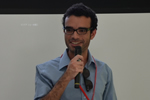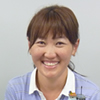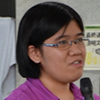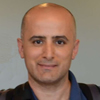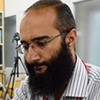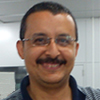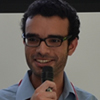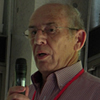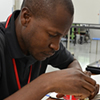
| TOP > Program > CLPT3 > Wilder Bezerra Lopes | ||||||||||||||||||||||||||||||||||||||||||||||
|
|
|
2008 - Bachelor Degree in Electrical Engineering at the Federal University of Bahia, Brazil; Statement of PurposeIn Brazil many young people (high school and undergrad) have the curiosity to know how things and stuff works. However, due to the lack of high technology companies capable to do innovation, most of those students are attracted to work on non-tech areas after coming out university. I believe that a radical change is necessary to motivate the creation of hi-tech companies. Nevertheless, paving the way for this change takes time, money and human resources. From the educational point-of-view, what Professors and Researchers inside the universities can do to contribute to this change is to increase the range of tools presented to the students during the course. The CanSat program is the perfect initiative to develop hi-tech concepts still in the first years of the engineering courses. In a reduced scale, it offers the opportunity to experience all the aspects of a technological product development. Also, it becomes even more interesting due to its space application appeal, a field that many times does not seem reachable for undergrad students. As an initial step, I am going to impart the CanSat know-how to my laboratory staff. After that, we are going to give free workshops in order to attract young minds to experience the CanSat program. Once we have reached enough people, we are going to concentrate in the competitions to motivate even more the excellence and innovation in the project. Although this is a small step, I believe it can be a very effective tool to foster ideas to be the basis for national hi-tech start-ups focused on the space exploration. Feedback from CLTP programThe program was very well organized. We had access to all the necessary information to start a CanSat program in our own countries, from the management topics to the engineering knowledge. The people involved (professors, mentors and secretaries) are very open and prone to help you at anytime in any issue. It was very fruitful to exchange expertise with the Tokyo Metropolitan University staff (our mentors), with the Lecturers (Professors from the several Japanese universities), and with the other participants. Finally, the international environment of the program is one of the keys that motivates you day-by-day, and provides a precious learning as we can face the project management from the perspective of the others. Vision for the future
The following topics give an overview of the future activities I am willing to implement: Message for future CLTP participants
I totally recommend the CLTP program. It is a privilege to be exposed to the know-how and structure of the Japanese universities and the high skills of their engineers. We can learn a lot from them and have access to a precious knowledge in a short time.
| |||||||||||||||||||||||||||||||||||||||||||
|
Top | Graduates | Program | How to Apply | Contact | Links | Site policy | Privacy Policy | FAQ | Japanese(日本語) | Site Map | ||||||||||||||||||||||||||||||||||||||||||||||
© UNISEC, all rights reserved. | ||||||||||||||||||||||||||||||||||||||||||||||




















